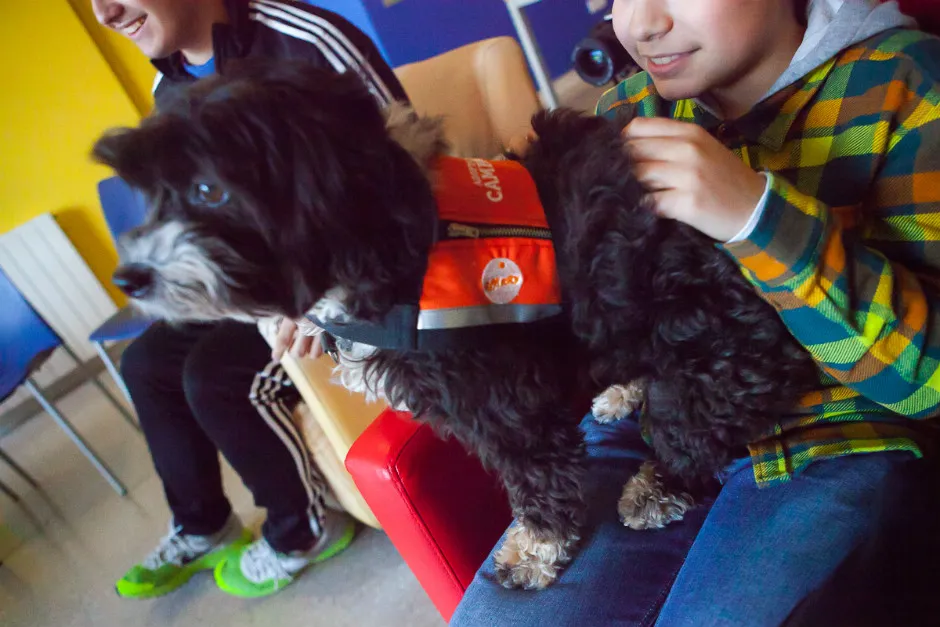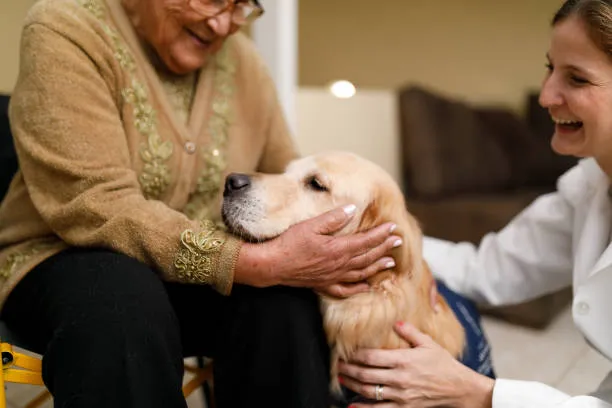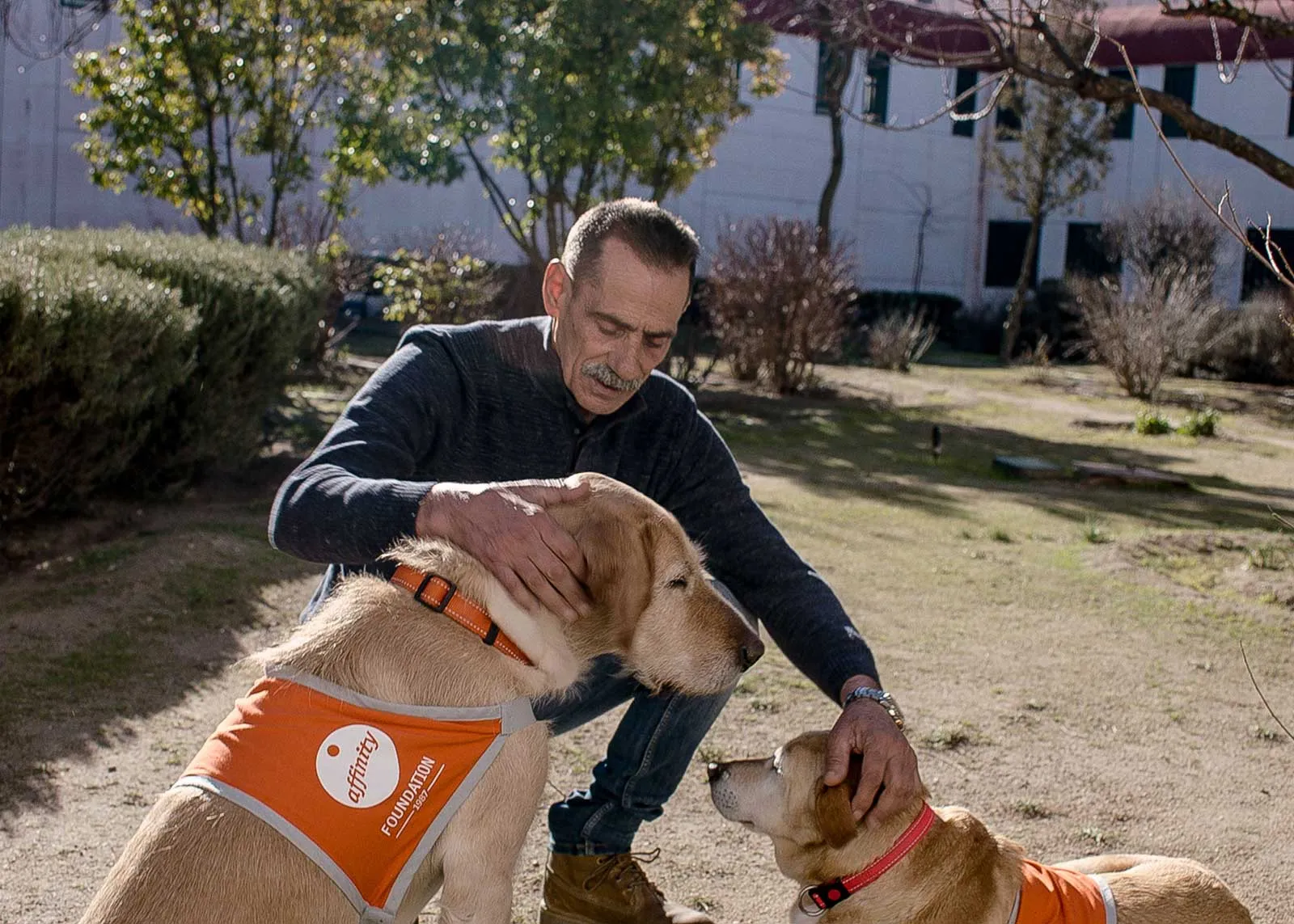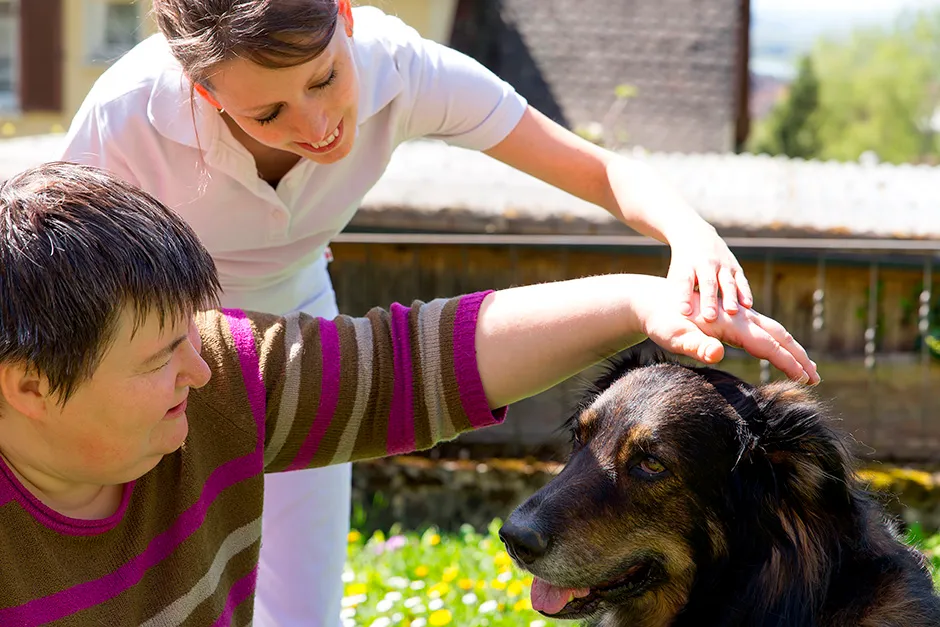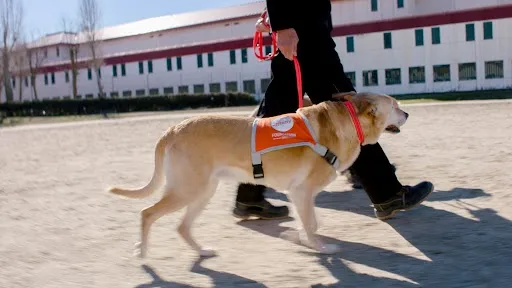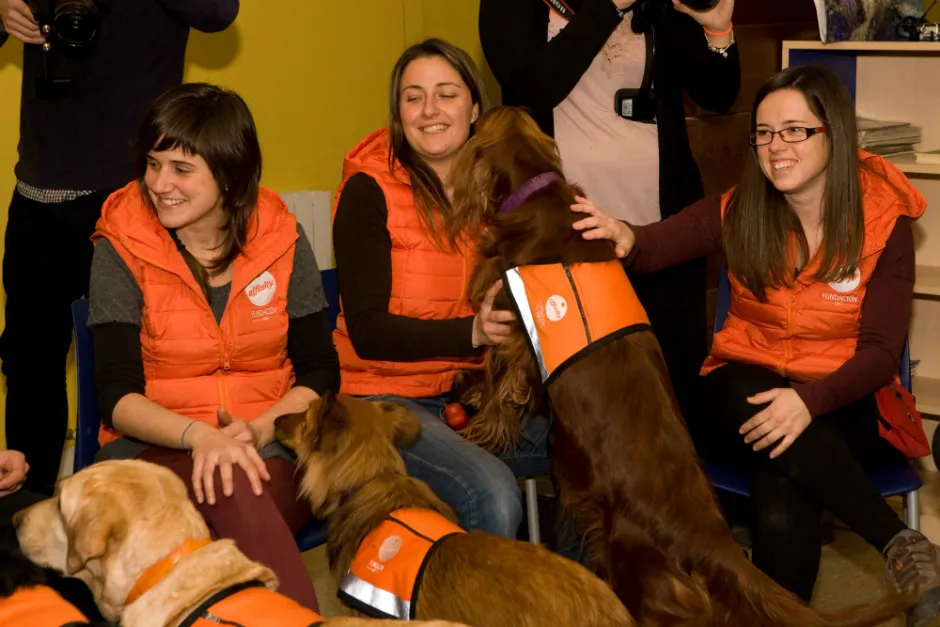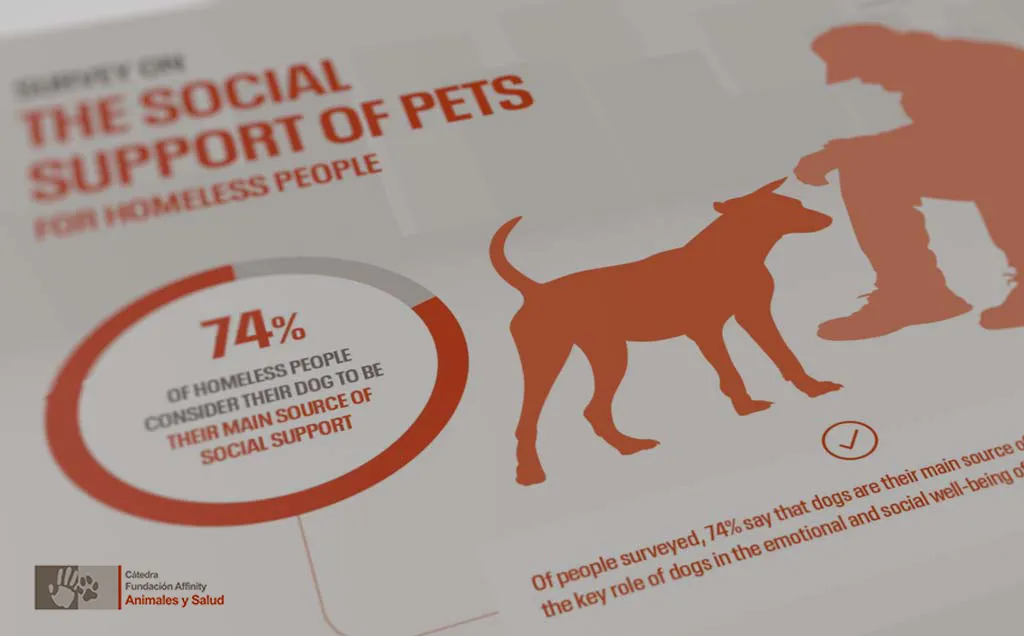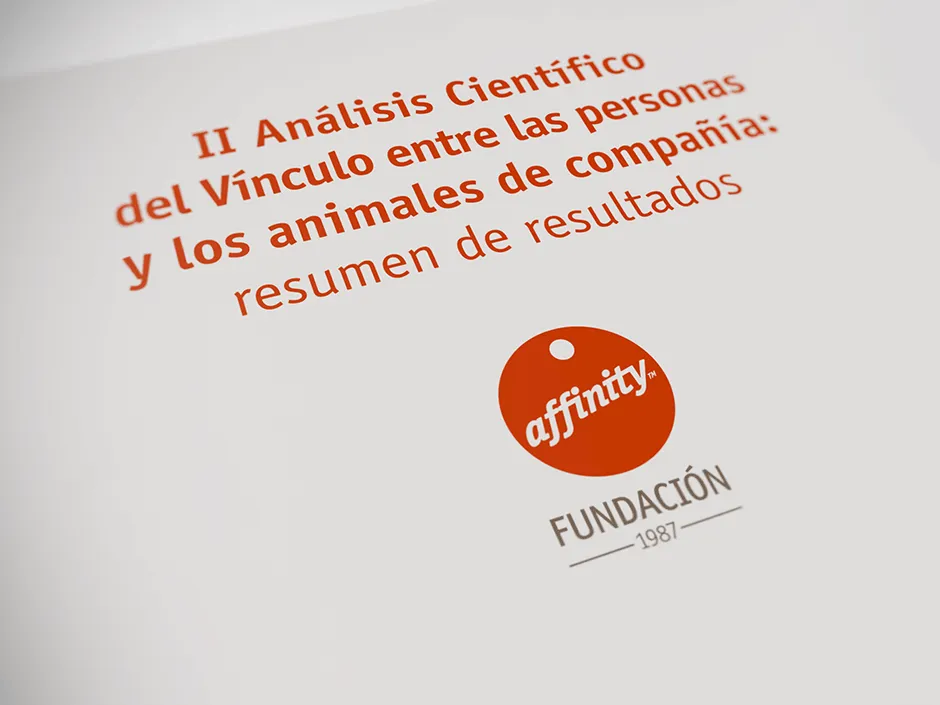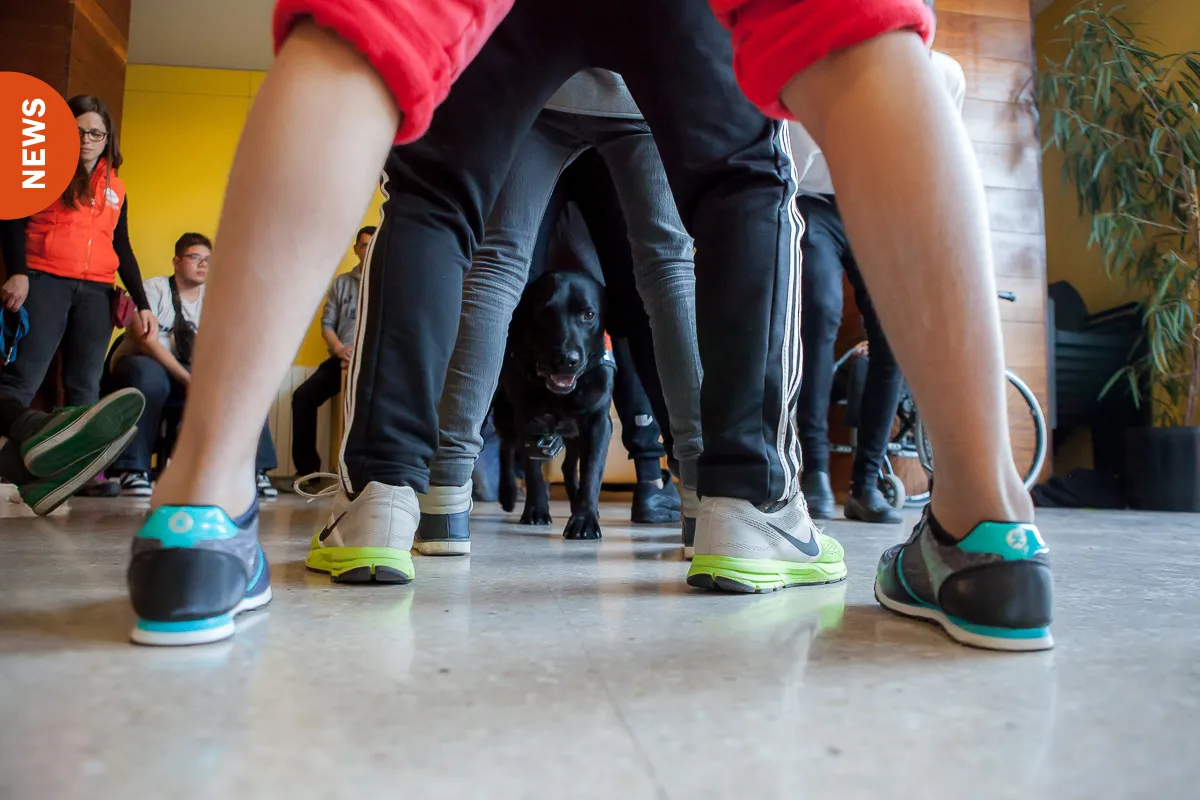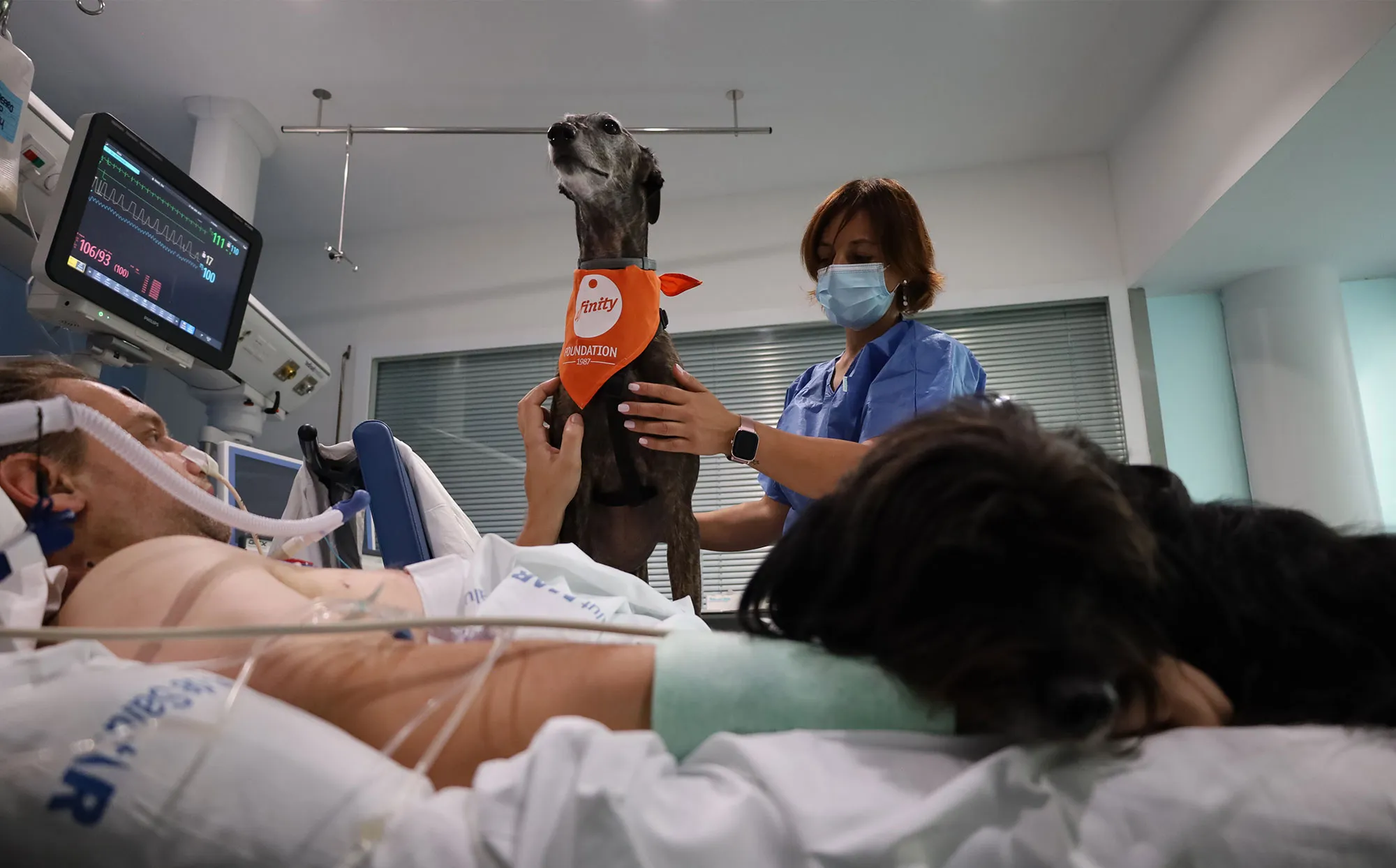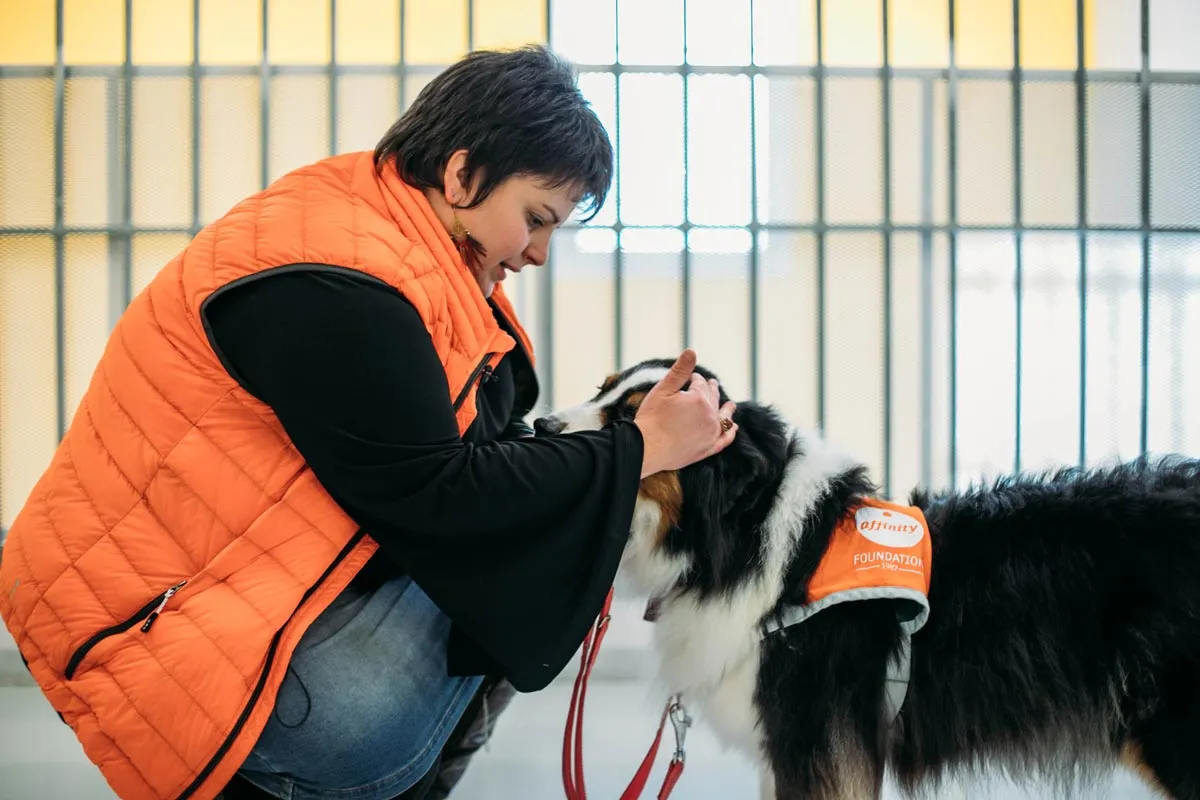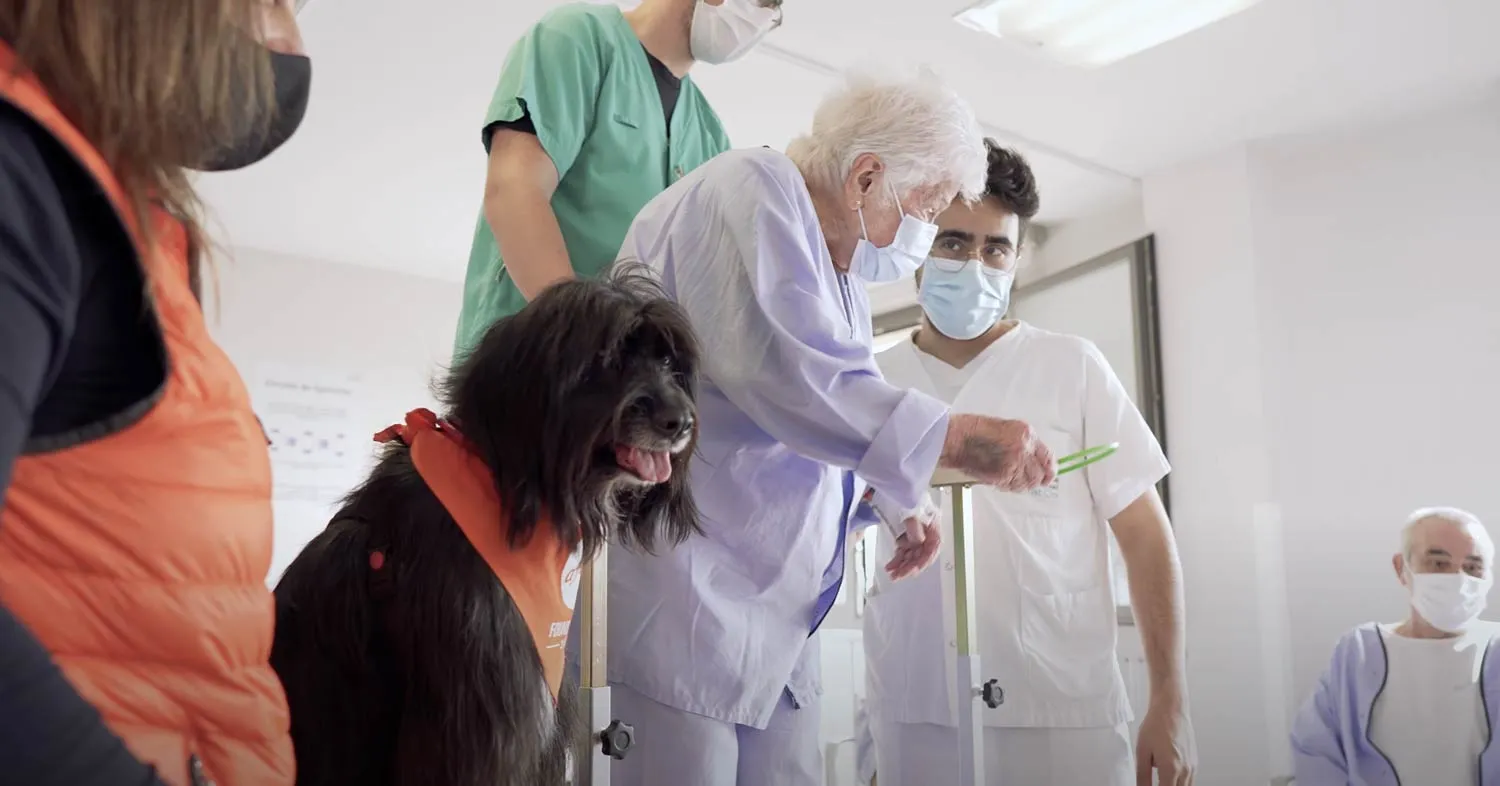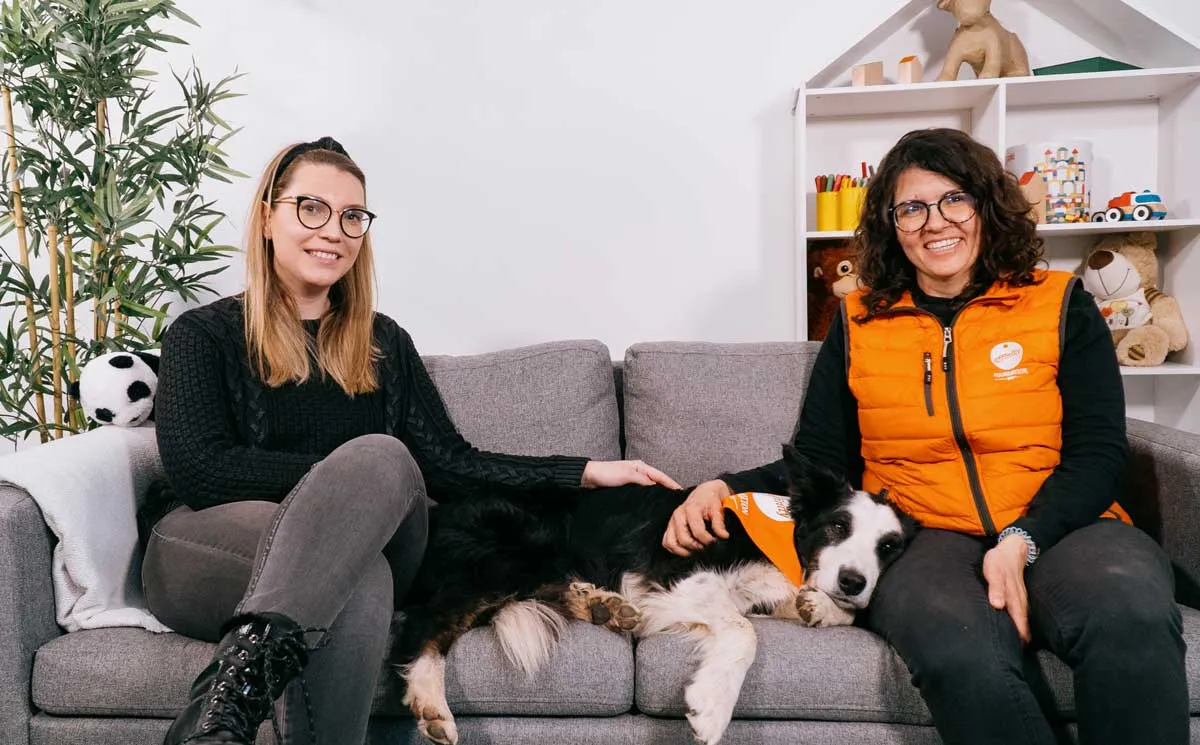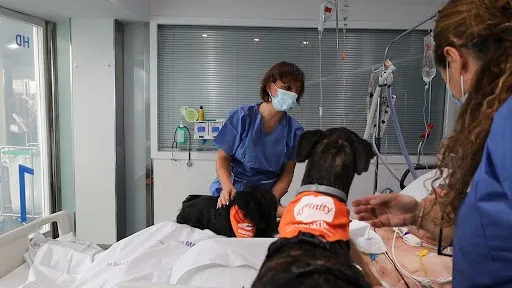La Fundación
Creemos en un vínculo que transforma el mundo
Creemos que un mundo con perros y gatos es un lugar mejor gracias al poder transformador del vínculo.
Un vínculo que enriquece la experiencia de los perros, los gatos y los pet-parents. Que muchas veces tiene un impacto profundamente positivo en la salud emocional de las personas, ayudando a mejorar a toda la sociedad.
La relación única que creamos con nuestros animales nos hace sentir bien. Es una relación que suma: estimula la resiliencia, la comunicación con los demás y la empatía. Fortalece el tejido social porque promueve relaciones más saludables.
En la Fundación sabemos lo valioso que es este vínculo y sus beneficios para toda la sociedad. Llevamos años concienciando sobre estos beneficios, investigando sobre ellos y poniéndolos en práctica en programas de terapias.
Trabajamos cada día para mejorar la vida de animales y personas.

Acción social
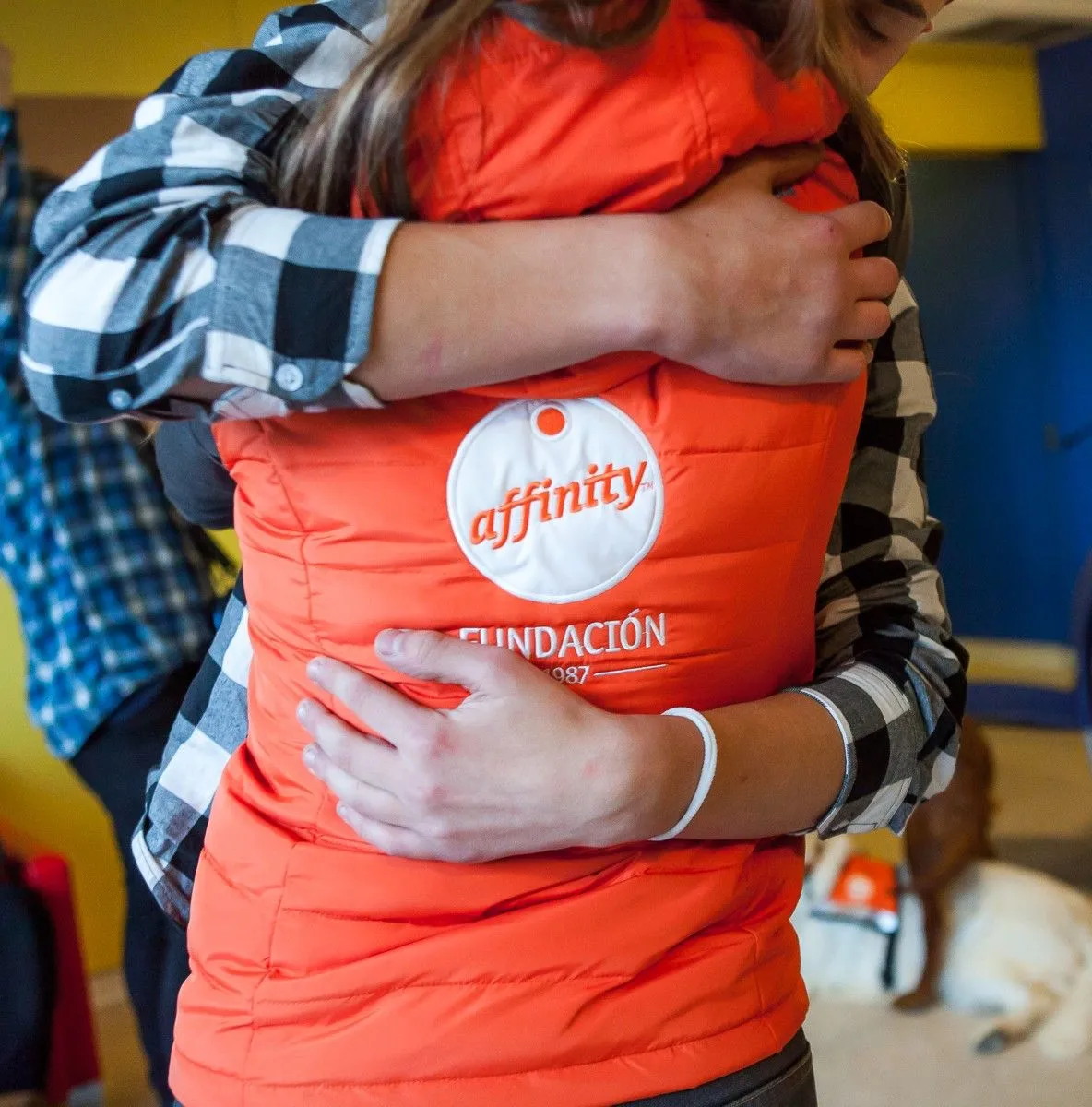
Concienciación

Investigación
Vínculo
Investigamos
Investigar es la mejor manera de arrojar luz sobre los problemas de los animales y los beneficios que nos aportan. Por eso creamos el primer grupo de investigación sobre el vínculo con animales en España, la Cátedra Fundación Affinity Animales y Salud de la Universidad Autónoma de Barcelona para investigar y el Observatorio Fundación Affinity para difundir nuestros conocimientos.
Actuamos
Donde no llegan los perros de familia, llegan los de terapia. Llevamos más de 25 años aplicando los beneficios del vínculo a través de proyectos de Acción Social y Terapias y Educación Asisitida con Animales de Compañía, ayudando a personas en dificultad a motivarse, sentirse mejor y seguir adelante.
Concienciamos
Nuestras campañas están pensadas para que todos reflexionemos. Queremos difundir los beneficios del vínculo, visibilizar lo invisible y concienciar sobre cuidado responsable de perros y gatos. Entre todos, todo es más fácil.
Cómo somos
Somos expertos en nuestro campo. Tenemos espíritu emprendedor. Somos pioneros en investigación, concienciación y acción social con animales. Somos curiosos. Seguimos investigando y aprendiendo. Creemos en el respeto por los animales y las personas. Estamos comprometidos con nuestras causas: investigar, actuar y concienciar. Somos optimistas y creemos que nuestro trabajo puede mejorar la sociedad.
Nuestro impacto
Pioneros en introducir terapias
con animales en España: en centros penitenciarios, hospitales, residencias, escuelas ...
Más de 100.000 personas beneficiadas
por los programas de terapias asistidas con animales desde 1992
Primera campaña contra el abandono
"Él nunca lo haría, no lo abandones"
Estudio anual sobre el abandono
desde 1995
+700 historias reales de vínculo
en nuestra web. Testimonios inspiradores que son un homenaje a nuestros perros y gatos.
Animales No Son Cosas
Campaña que promovió el cambio del Código Civil junto al observatorio Justicia y Defensa Animal
Primer grupo investigador
sobre el vínculo desde 2011: La Cátedra Fundación Affinity Animales y Salud
+30 años
llevando a cabo campañas anuales de concienciación
Referentes en medios de comunicación
sobre temas de convivencia responsable, abandono y vínculo

Órganos de gobierno
Patronato
Carolina Usandizaga Carulla, Presidenta
Lluís Carulla Ruiz, Vicepresidente
Francisco Gispert Ribera, Secretario
Beatriz Ferrer-Salat Serra de Migni, Vocal
Celina Torres Lloveras, Vocal
Cristina García-Orcoyen Tormo, Vocal
Francesc Blanch Martell, Vocal
Josep Campmany Sallas, Vocal
Josep Maria Solé Gracia, Vocal
Juan Martín, Vocal
Juanjo Sáez-Torres, Vocal
Lluís Miguel Ferrer Caubet, Vocal
Magdalena Oranich i Sologran, Vocal
Marc Jové Gestí, Vocal
Miquel Ángel Roca Bennassar, Vocal
Historia
Memorias de actividad
Memoria de Actividades 2023

¿Quieres colaborar con nosotros?
Me dedico a la investigación y quiero saber más sobre la Cátedra Fundación Affinity
Soy pet-lover y quiero compartir mi historia de vínculo con mi perro o gato para inspirar a otros
Me encantan los animales y quiero sumarme a vuestra labor de concienciación
Me dedico a la comunicación y quiero difundir vuestro
Colaboradores

















